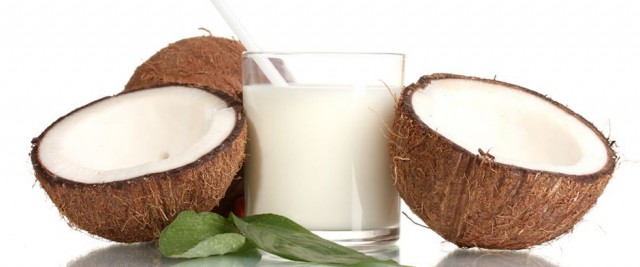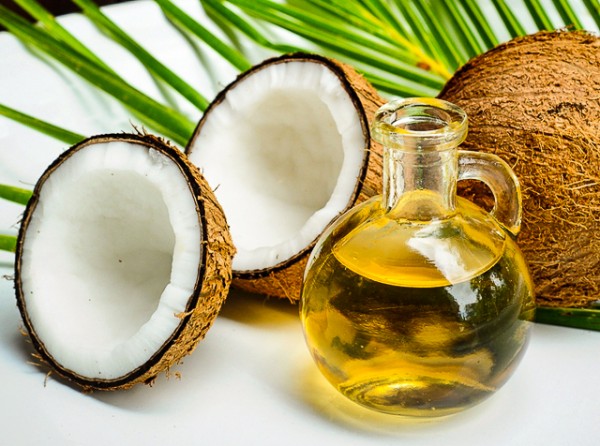Myths and Facts about Coconut Oil
Picture this. You are walking along the soothing beaches of Oahu. All around, you are surrounded with the usual suspects found at a beach – the surfers, the swimmers, the sunbathers and those who love paddleboarding. Suddenly you begin to notice the difference between the people around you – the tourists and those that are local to the region.
With their abundant energy and great health, the locals appear to simply be in better shape than the tourists! Even more importantly, no one seems to have a cough, headache or sniffle as they run around.
And now suddenly, you’re puzzled about this discovery and you struggle to understand what the secret might be. Is it the abundant sunlight that they receive? Or the absences of stress in their lifestyles? The prevalence of salt in the air?
Those things may play a role, but the real secret lies within the world’s largest seed.
Coconut: A Tropical Powerhouse
The Malaysian and Polynesian cultures have revered the coconut for centuries. Within the coconut lies an arsenal of essential nutrients needed by the body for its daily healthy metabolism and functioning. As well as being an important provider of essential amino acids, coconuts are also a rich source of minerals such as magnesium, phosphorus, potassium, manganese, vitamin B, vitamin C and calcium. Coconut oil contains all of these nutrients and more. Made up of over 90% saturated fat, coconut oil is very often the subject of heated debate.
The Saturated Fat Confusion
Coconut oil is derived from the dried flesh of the coconut fruit. It’s high percentage of plant-based saturated fat has also made it the subject of an ongoing debate. While it’s true that coconut oil is 90 percent saturated fat, 45 percent of that fat is lauric acid, a medium-chain fatty acid that converts in your body to monolaurin.
To put it in a better perspective, consider this; monolaurin is a natural occurring compound that is found in breastfeeding mothers. It’s presence in breast milk boosts the immune system of babies. It is also known to promote normal brain development and contribute to healthy bones, as well as protect against viruses and bacteria.
Coconut Oil Metabolism Booster
Skeptics who suggest that the saturated fat content of coconut oil is simply too unhealthy fail to take these other details into consideration. Most of the fat content found in coconut is made up of medium-chain triglycerides. This makes coconut fat a much healthier option than the saturated fats which can be found in animals that have been fed a diet composed of soy and corn. These fats are more easily digested than other fats and are quickly metabolized, giving you a great source of energy.
Medium-chain triglycerides are metabolized differently than other fats. Most fats are stored in your body’s cells. However, the fat content found in coconut is not stored but sent to the liver where it is converted to energy. What this simply means is that, instead of being stored in your fat cells (which is what happens when you eat your typical bacon and omelet breakfast), the fat content found in coconut oil is sent to your liver where it is almost immediately burned off.
Another Look at Those Advantages
Now let’s carefully assess the theoretical health benefits of coconut oil. Coconut appears to be anti-just-about-everything:
- Anti-inflammatory
- Anti-pyretic (it reduces fever)
- Anti-fungal
- Anti-bacterial
During a test involving rats suffering from inflammation, a pharmacological study found significant evidence that the inflammation was reduced with virgin coconut oil. The study also revealed that rats who were suffering from pain caused by induced hyperthermia were able to find some relief from their fever and pain with the use of virgin coconut oil.
Based on these findings, researchers concluded that there was credible evidence supporting the view that coconut oil possessed “…”anti-inflammatory, analgesic, and antipyretic properties.” People could therefore rely on the use of coconut oil in treating symptoms of inflammation, fever and pain. Certainly, that’s bound to be good news for the rats. Using humans for a similar study would yield even more concrete results and conclusions.
Coconut oil metabolism study
To study the antifungal properties of coconut, samples of coconut oil were used in treating a fungal infection. The results were then compared to a similar treatment with the use of fluconazole – a known antifungal drug. Fifty-two different isolates of Candida were taken from clinical specimens. Out of this sample, the isolate Candida Alibicans was the most commonly used. This is important, as this form is the common cause of diaper rash, vaginitis, thrush, and yeast infections. All isolates were tested to see how susceptible they were to both virgin coconut oil and the antifungal drug. Researchers found that while it took a 1:2 dilution of Fluconazole to record positive results, samples of coconut oil were able to record similar results without needing as much (requiring as low as 1:4 dilution).
Translation: Samples of coconut oil were twice as effective in fighting the fungus. The drug simply wasn’t as effective as coconut oil. Mother Nature once again showing her superior hand.
Similar records of success were found in another study where researchers sought to investigate if the antibacterial property of coconut oil was effective enough to be used as a treatment for skin infections. 26 patients who were identified as suffering from atopic dermatitis – a skin condition characterized by dry and painful skin – were involved in a double blind, placebo-controlled study that tested their response to the treatment of the bacterium Staphylococcus Aureus .
Half the members of the group were required to use virgin coconut oil twice a day for a period of four weeks. This treatment was applied on non infected areas. The other half of the group were asked to follow the same routine using virgin olive oil instead of coconut oil. In the initial stage of the study, 76% of the participants (20 out of 26) were found to have staphylococcus when tested. However, once the study was completed, less than 6% of the people who used virgin coconut oil were found to still have the bacteria as opposed to the 50% rate found in the second group. Coconut users were also able to find relief from dry skin.
With these results, most researchers came to the conclusion that there was credible evidence that the use of coconut oil could be used in treating conditions of fungal, viral or bacterial origins. Although we agree, we’d be even more delighted if this study was extended to an even larger participant pool as well as a larger variety of bacterial strain in order to further establish these results.
Heart and Fat Burning Benefits
Another point that is constantly being raised by advocates of coconut oil is the impressive fat-burning and cardio-protective features of coconut oil. Based on the results of a population study,which involved more than 2,500 local residents of Tokelau and Pukapuka, the daily intake of coconut oil was found to have no effect on cholesterol levels.
Investigators tracked folks who consumed a high-fat diet derived primarily from coconuts – every meal contained coconut in one form or another. The results of these investigations revealed that the overall health and cardiovascular stamina of the participants were not compromised as a result of their diet. Even better, the cholesterol levels of all the participants were found to still be well within healthy margins despite the high level of saturated fat (in the form of coconut oil) contained in their diet.
Most of the citizens had never suffered from diseases such as bowel disorders, colon cancer and coronary heart disease. The lead researcher, Dr. Ian Prior, concluded that there was no evidence that high saturated fat intake from coconut oil had a harmful effect.
This conclusion seems right, and then some. Not only does the coconut oil appear to not hurt, it also seems to be beneficial when it comes to gastrointestinal health. This view, however, has yet to be tested or proven. Interestingly, when it comes to weight loss, it appears that coconut oil’s medium-chain triglycerides are the very reason it is effective. It turns out that when you eat coconut oil, your body uses it more quickly rather than storing it as body fat. Medium-chain triglycerides are thermogenic. They boost the rate of your body’s metabolism which in turn allows you to burn more calories.
For example, according to several online sources, farmers from the 1940s wanted to fatten up their livestock, so they gave them coconut oil. However, the animals became leaner and more active. Although this example cannot be confirmed by any credible source, we did discover a human study that appeared to back it up. In a test designed to study the effects of the coconut diet eaten by residents of the Yucatan Peninsula of Mexico, researchers discovered that they had a metabolic rate that was 25% higher than people in the US. However, this study (like the example given with the farmers and their livestock) cannot be properly substantiated. Both appear to be perpetuated by the same author, who never cites the studies he is pulling from.
Cconut oil myth or fact
We were prepared to still ignore these findings – despite the obvious signs supporting the beneficial actions of medium-chain triglycerides-because the data lacked clinical backings. Then we came across several studies which included a randomized, placebo-controlled, double-blind study from Brazil. Researchers tested the effects of coconut oil on 40 women between the ages of 20 to 40, all of whom had been diagnosed with clinical abdominal obesity(waist circumference of more than 88 cm). 20 of these women received a daily dose of either coconut oil or soybean oil every day for 3 months. Each of these women were asked to walk for 50 minutes every day and to carefully follow a balanced low calorie diet.
Once the study was completed it was revealed that the women who took coconut oil had lost more weight than those taking soybean oil. The group fed coconut oil also had higher HDL (good) cholesterol level than the second group. Both groups enjoyed a decrease in their body mass index (BMI). At the end of the study, the women who used coconut oil were able to increase their “good” cholesterol level to healthy margins. They were also able to trim down their waist size by shedding a few extra pounds . Not bad for a big seed!
The Right Way to Use Coconut Oil
All of these goes to show that using coconut oil is in no way bad for you. There is a significant difference to be found between the saturated fat content of animals and the saturated fat content of coconut.
There is also the very possible likelihood that those who consume coconut oil are able to benefit from its anti-bacterial, anti-fungal and anti-viral features. It has also been shown to have only beneficial effects on people’s weight loss and heart health efforts.
We therefore encourage the use of coconut oil and not just for its taste.
Thanks to its high smoking point (a minimum of 350 degrees), coconut oil is a great choice for cooking. This way, you can enjoy cooking your favorite meals without needing to worry about the coconut oil morphing into toxic trans-fats in front of you. Plus, coconut oil is very stable. It has a two-year shelf life and won’t turn rancid, even in warm temperatures.







